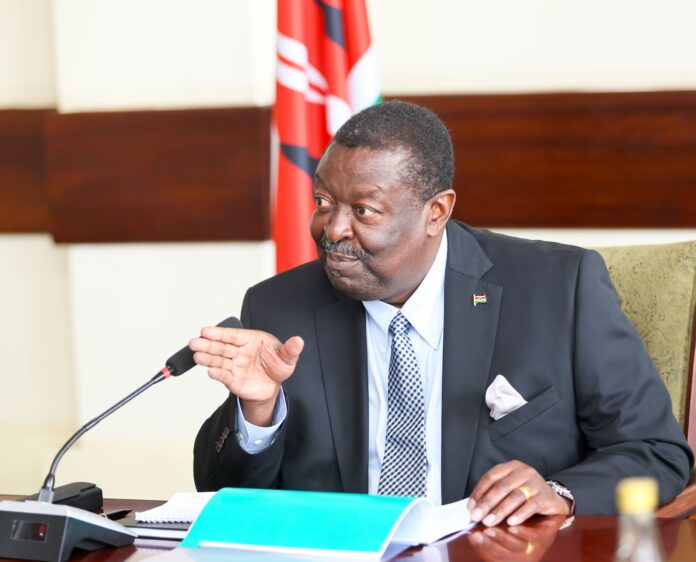Israeli government has declared interest in investing in huge farming in the country through structured private-to-private arrangements with the support and facilitation of the two governments.
Faced with the dwindling food production particularly wheat caused by the war in Ukraine, the Israeli business community is keen to invest in Kenya’s agricultural sector which is yet to reach its full potential, a government.
In the arrangement discussed last week by Prime Cabinet Secretary Musalia Mudavadi with the Israeli Agriculture Minister Avi Ditcher, the private sector investors will be allowed to invest billions in thousands of hectares and export the produce through a private arrangement in a possible 25 years deal.
“This is a private-private arrangement which will only be guaranteed by the two governments through giving necessary logistics and a conducive environment,” said Mudavadi.
Mudavadi said that Kenya was keen on such investments given that it allows the country to utilize through the private sector the millions of lands currently idle and part of the produce would go into pushing down the prices of food locally.
“The biggest catch for Kenyans is the thousands of jobs that would be created by the private sector once the Israeli investors come in,” said Mudavadi.
Mudavadi, also Cabinet Secretary for Foreign and Diaspora Affairs, had a video conference call with Mr. Ditcher, Minister for Agriculture of the State of Israel.
In the meeting, Mudavadi and Ditcher discussed cooperation between Kenya and Israel in the field of Agriculture. Israel is interested in entering into partnerships with Kenyan farming entities involved in wheat production.
“The partnerships would be structured along private-to-private arrangements with the support and facilitation of the two governments – Kenya and Israel.,” said Ditcher.
Ditcher noted that Kenya, the country’s agricultural sector, offers significant opportunities due to the presence of large tracts of arable land coupled with the rising population.
The Agriculture Minister noted that their farmers and firms had developed technology that will enable Kenya to achieve food production with minimal use of water and soil resources.
“Israel is a leader in precision agriculture that involves the use of drones, sensors, and farm management software to boost farmers’ yields. We want to invest this in Kenya through our investors,” said Ditcher.
Present were senior officials from the two governments, including Mr. Abdishakur Hussein, Ag. Deputy Director-General (Foreign Service) and Head of the Middle East Directorate at the Ministry of Foreign and Diaspora Affairs Kenya, and Amb. Michael Lotem, Ambassador of the State of Israel in Nairobi.
In Kenya, government data indicates that the agricultural sector contributes over 33 percent of the gross domestic product, employs 40 percent of the population, and accounts for 65 percent of the country’s export earnings.
According to Mudavadi, Kenya was seeking technologies from Israel that would lower the cost of production and make locally-grown agricultural produce competitive in the global market.
“Kenya will also leverage modern technologies to transform from being an importer to a net exporter,” said Mudavadi.








